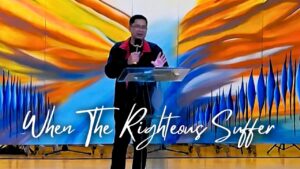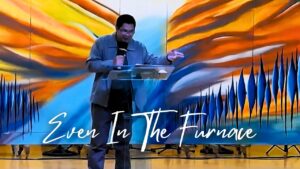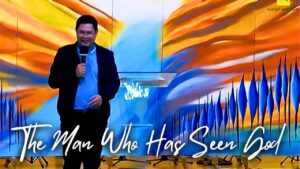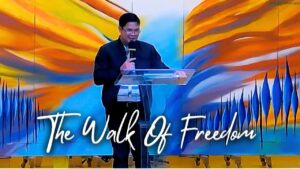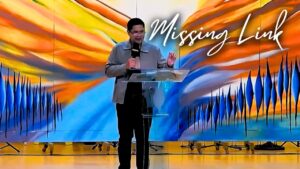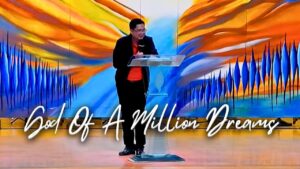Title: Look to the Hill
Scripture Reading: Psalms 121
I will lift up mine eyes unto the hills, from whence cometh my help.
2 My help cometh from the Lord, which made heaven and earth.
3 He will not suffer thy foot to be moved: he that keepeth thee will not slumber.
4 Behold, he that keepeth Israel shall neither slumber nor sleep.
5 The Lord is thy keeper: the Lord is thy shade upon thy right hand.
6 The sun shall not smite thee by day, nor the moon by night.
7 The Lord shall preserve thee from all evil: he shall preserve thy soul.
8 The Lord shall preserve thy going out and thy coming in from this time forth, and even for evermore.
The preceding Psalm is one of complaint; the present, one of comfort.
Psalms 121 is a short psalm and should be read in one setting.
In Psalms 121, all the verbs are imperfects. They denote ongoing and continual divine care and protection.
- A detailed exposition of the whole psalm.
The Psalmist started of with ‘I will lift up my eyes to the mountains.’ This is imagery denoting how a person looks to YHWH and trust Him. ‘To the mountains’ denotes:
- Creation
- The Temple on Mount Moriah.
- Imagery of strength, stability, and longevity.
- Protection
- Contrast to Baal worship done on the high places.
YHWH is associated with several mountains:
- Mount Moriah
- Mount Nebo
- Mount Sinai
- The Mountain in the North
In the Ancient Near East, the gods were always associated with mountains because of:
- Their height
- Their grandeur
- Their permanence
- Their protection
So, this Psalms started off by confessing that YHWH is his God and he looks to YHWH and not like the people of this world who look to Baal Worship, a representation of the gods of this world, other gods besides YHWH.
The God who ‘made heaven and earth’: is omnipotent. This refers to the physical creation of this planet.
Notice how YHWH is characterized:
- Creator
- Sustainer: of an individual as well as a corporate body.
- Vigilant observer
- Shade
- Perpetual keeping.
Verse 3 confidently declares, ‘He will not allow your foot to slip.’ This is a common Hebrew imagery which
- Speaks of a godly life as a clear, straight, level road path/way.
- Speaks of evil as a deviation from the clearly marked path of God or a stumbling on the path.
Verse 4 says, ‘He who keep you.’ This Psalm is characterized by the use of this root word, ‘keep,’ which is found in verse 3, 4, 5, 7 twice and verse 8. The emphasis is that our covenant God watches and keeps His people.
The second part of verse 4 says, ‘He will not slumber.’ God is always watching at:
- His creation.
- His people.
1 Kings 18:26-27: ‘And they took the bull that was given them, and they prepared it and called upon the name of Baal from morning until noon, saying, “O Baal, answer us!” But there was no voice, and no one answered. And they limped around the altar that they had made. And at noon Elijah mocked them, saying, “Cry aloud, for he is a god. Either he is musing, or he is relieving himself, or he is on a journey, or perhaps he is asleep and must be awakened.”
Verse 6 says, ‘the sun will not smite you by day, nor the moon by night.’ This is imagery for:
- Military attack
- Demonic attack
The sun by day and the moon by night means daily. The sun represents the heat of the daily life and the moon represents the moment of darkness in our lives.
Notice the phrase ‘protect and keep from all evil in verse 7.
Again verse 7 continued, ‘He will keep your soul’. What a wonderful promise of individual care and protection. He is ‘with’ and ‘for’ faithful followers. We are not alone and our life has purpose.
The Psalmist ends this psalm with verse 8, ‘The LORD will guard your going out and your coming in, from this time forth and forever.’ This is the Hebrew imagery for God’s watchful care over all of the life of His faithful followers. ‘Your going out and your coming in’ is imagery for daily life. To compound it, verse 8 has an element of eternity. The afterlife has the same benefits as the present life we are in. We are secured forever.
- God will guard and protect you
If you read Psalms 121 in the Good News Bible, the title given is The LORD our Protector. The word, protect or protector is repeated 5 times in just 8 verses.
We would appreciate this portion of scripture if we consider:
- The greatness of our need. There are certainties. Then there are the uncertainties,
- The insufficiency of human help.
Our life can be filled with regrets, fear and worry. Regrets looks back.
But faith looks up.
The foundation, God’s infinite power and goodness, on which we stand cannot be moved. The standing of the believer in Jesus is impressive:
- We stand in grace
- We stand in the Gospel
- We stand in courage and strength
- We stand in faith
- We stand in Christian liberty
- We stand in Christian unity
- We stand in the Lord
- Look exclusively to the hills
All believers find themselves on a spiritual journey in this life, one in which they are traveling through this world as pilgrims towards their true home in heaven. God’s people are aliens and strangers here, merely passing through this world, on the way to their final destination in glory.
3 actions are necessary if we are to advance triumphantly in the will of God.
First look exclusively to the LORD.
Secondly listen attentively to the LORD. God’s word is an all-sufficient source for divine grace for pilgrims on life’s journey.
Thirdly, lean wholly upon the LORD.
- When the going gets tough
